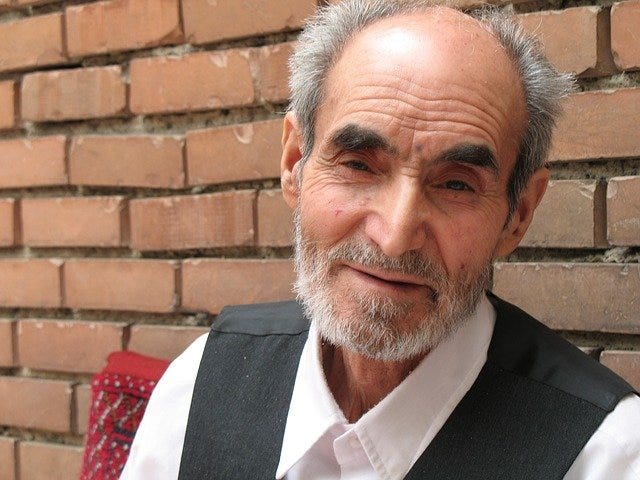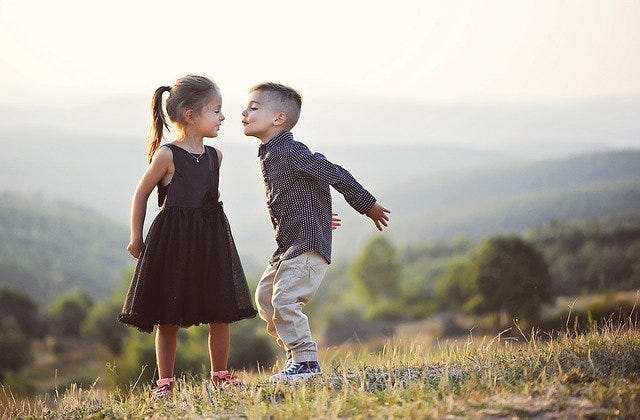As we left the Mercado da Vila a man called to us. “A Senhora, Senhora.” We turned to find a security guard and a man. After they converted to English we realized they were asking about a change purse. Denise looked and realized her orange change purse was missing. The man pulled it out of his sleeve and presented it to her.
Innate or Learned
We were walking along the ocean the next day when we recalled the events of the day before. Somehow this led to a discussion of human kindness and specifically was it learned or innate. When I shrugged, Denise reminded me I was a religion major and must have considered this at some point. She was right. It was a logical extension of the question “how could a loving God create Hitler?” Okay, I know it is not that simple…but you get my gist.
So once more I consulted the Google machine, in preparation for writing this article. According to Psychology Today:
The best way to think about empathy is an innate capacity that needs to be developed, and to see it as a detail in a larger picture. Infants learn to identify and regulate their emotions through successful dyadic interactions with their caretakers, primarily their mothers. An attuned mother who’s receptive to her child’s needs and cues is one who permits her baby to thrive and develop emotionally. By having his or her emotional states recognized and responded to, the groundwork is laid not just for the child’s sense of self but sense of other. In time, that seed grows into empathy and the capacity for intimate connection.
As an avid watcher of Law & Order: Criminal Intent this makes perfect sense. The sociopaths always had messed up childhoods. Okay, again, I know it is not that simple…but you get my gist.
Are People Just Honest?
But while empathy is a factor … it didn’t specifically answer the question are people innately honest? I faintly recalled the words of Thomas Hobbes, “In the state of nature, profit is the measure of right.” This suggested a rather dim view of mankind. So I dug further and found another Psychology Today article. It seems two groups of social scientists with opposing views on this subject worked together to research this question.
The results support an intuitive-dishonesty effect – but only when dishonesty does not harm concrete victims.
That is, in anonymous settings in which dishonesty does not have an obvious victim – for example, where lying earns the subject more money without causing another subject to lose anything … However, when dishonesty harms concrete others – for example, earning the subject more money at the expense of another subject earning less – no intuitive-dishonesty effect appears. This suggests that the social heuristic to “do no harm” to the victim might have canceled out the intuitive selfish appeal of dishonesty.
This may explain why a person who would never steal from their neighbor, is less bothered by lying to a “distant” insurance company. Of course, the man that returned Denise’s change purse did not know her. But he knew that by keeping it he would be depriving the owner.
Kindness In Foreign Lands
In our experience, you will find human kindness everywhere. In Japan, we were running from a train station to our hotel at 2200 one night because it was raining. I had a puffy jacket with a hood. Denise’s puffy jacket did not have a hood. We ducked from one awning to the next until we reached a traffic light without an overhang. A man, we never met, removed the plastic (disposable) raincoat he was wearing over his business suit and gave it to Denise. She objected, but he insistently shoved it into her hands. When the light turned green, he was gone, never to be seen again.
Another example from Thailand. When you first get to any country, the coins and bills can seem confusing. 60 bhat sounds like a lot but is only $2. And what costs 60 bhat in Thailand, would cost the equivalent of 600 bhat in the States. The street vendors know this. However, they will take the exact amount owed out of your hand. Never more. I was also impressed by their generosity. These people make in one year, what I made in one day … but they leave food outside their doors for the monks to collect in the morning, and seldom passed a street beggar without throwing a coin in their cup.
So are these traits innate or learned? I don’t care. I’m just pleased they seem to be universal.







Stop reading those Psychology Today articles. They just muddy the waters. I think people are more likely to lie to protect someone rather than advantage themselves. At least this has been my experience among my inner circles. Oh, and sometimes kids lie to protect themselves; i.e., "No, Mom. It wasn't me."
Loving your stories. Miss both of you. Where’s the kindness in America? Gotta look for it.